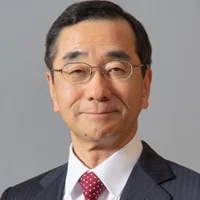Malaysia and Japan have shared a mutually beneficial bilateral trade relationship for close to five decades.
Japanese companies have long found Malaysia to be a prime location for their activities as Malaysia is a cost-competitive hub for investments in this region.
This is in keeping with Japan External Trade Organisation (Jetro) chairman Nobuhiko Sasaki’s (pic) recent statement which cited that Japanese firms invested RM8.8 billion in Malaysia in the final 12 months (spanning from the first quarter of 2021 to 2022). This too, while Malaysia was experiencing the Covid – 19 pandemic along with the rest of the world.
The amount invested by these firms, in total, was the highest since 2015.
Japanese investments in Asean, over the period, reached some RM122 billion, which was nearly at pre-pandemic ranges.
“This exhibits recovery is in motion,” Sasaki advised eNM Business recently.
Adding to this optimistic outlook, Sasaki mentioned that 43% of the Japanese firms working in Malaysia have indicated that they plan to develop their businesses here over the next two years.
“This shows that Japanese businesses in Malaysia and some Asean nations are recovering and ready to take on new demand,” he said.
He added, the collaboration between Malaysian and Japanese firms, which have a clear understanding of one another, are poised to address and overcome any new challenges as the economic climate along with, social and governance (ESG) elements in the nation remain favourable — especially during the post-Covid 19 pandemic period.
ESG necessities, said Sasaki, which entails uplifting human rights and decarbonisation, are beginning to have major influences on the supply and demand chain.
“ESG is now a requirement for funding, financing, and needed to cope with client demand. The act of respecting the rights of the individual has developed into a premise for worldwide competitiveness,” he added.
“Europe and the US are the main proponents of ESG. Nevertheless, ESG in Japan is applied to obtain funds and this is fast gaining ground,” he said, adding, Japanese businesses acknowledge that when it comes to sustainability, and now coupled with ESG, the health of the company becomes more viable and this helps raise either revenue or capital. And, these efforts are proactively being considered.
“We acknowledge that in responding to create greater sustainability, together with ESG, is no easy task but a crucial administrative concern that not solely reduces risks but in addition, can create alternatives for revenue. It might be mentioned here and now that consideration is being given to proactively tackle these points,” he added.
Sasaki said, in the long term, efforts that emphasise sustainability by businesses, akin to have respect for human rights and decarbonisation needs, are more likely to progress.
“These traits might not simply create new enterprise alternatives; however, it can elevate the perception towards a company. International emergencies and recent geopolitical events have led to present international supply chain being weak.
The ongoing turmoil between China and Taiwan and Russia’s invasion of Ukraine have quickly made financial safety a serious cause of concern for governments and businesses alike.
Sasaki then called for a greater emphasis towards creating a resilient supply chain and to be used to address unexpected geo political situations.
He added, Jetro was ready to support the cause of ESG with an intention to equip Japan’s manufacturing concerns to diversify abroad. This will create a stronger supply chain between Japan and Asean.









